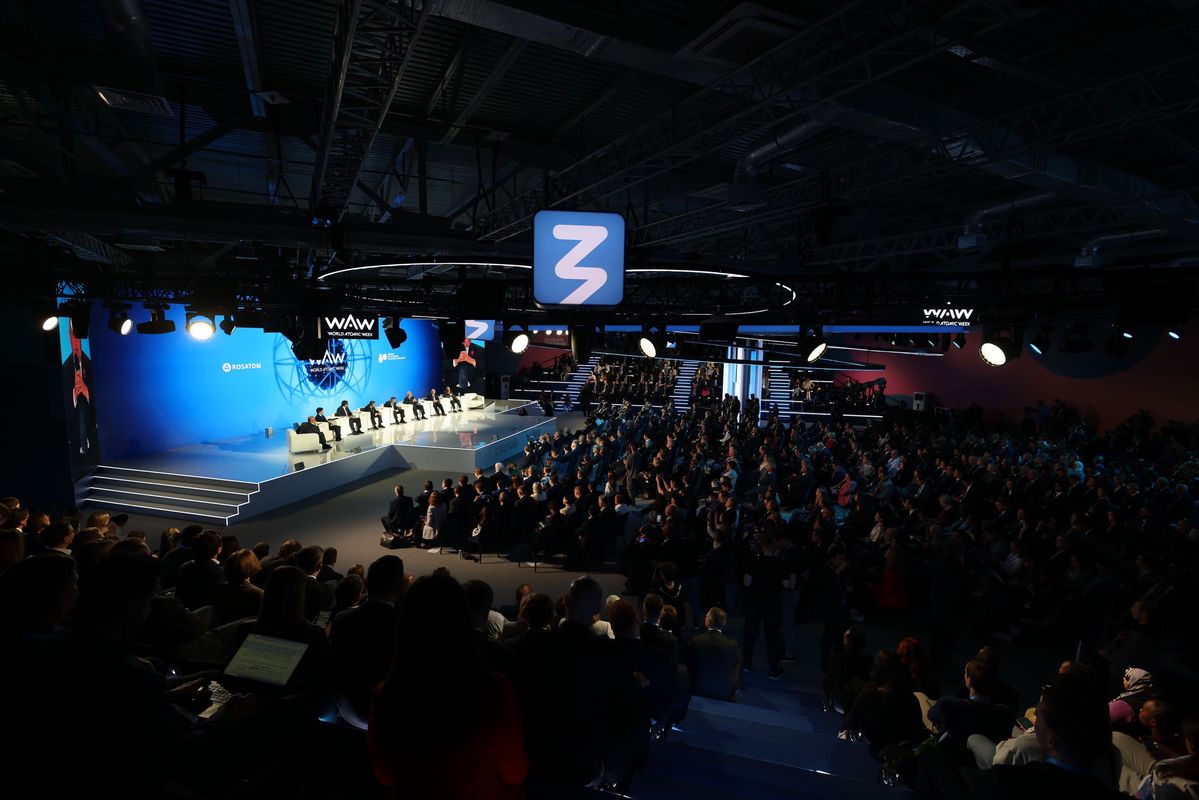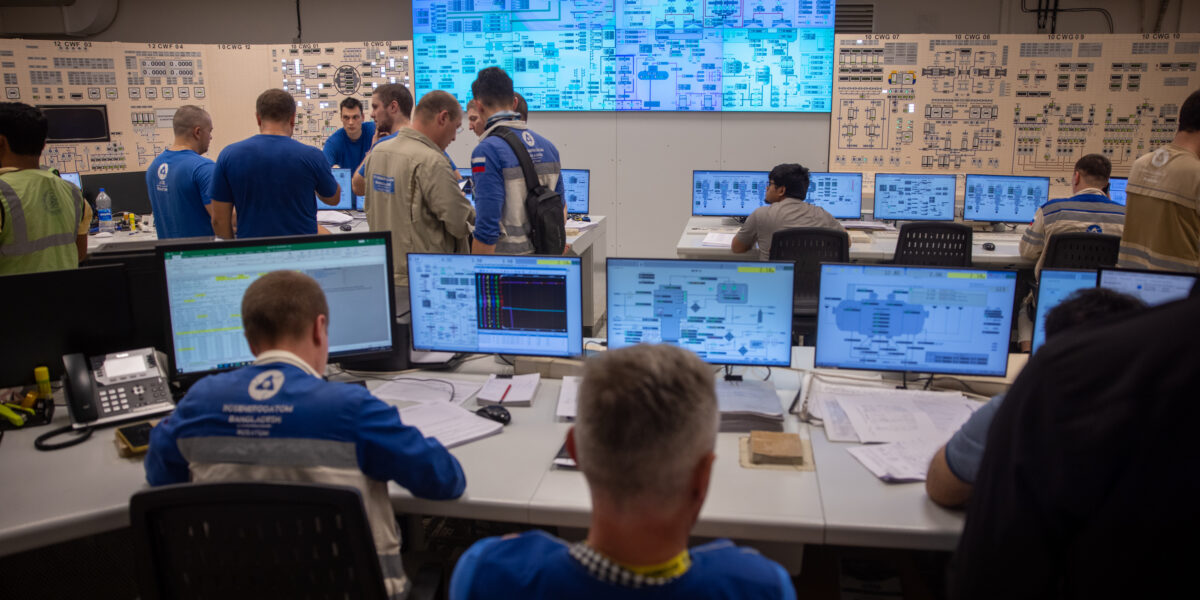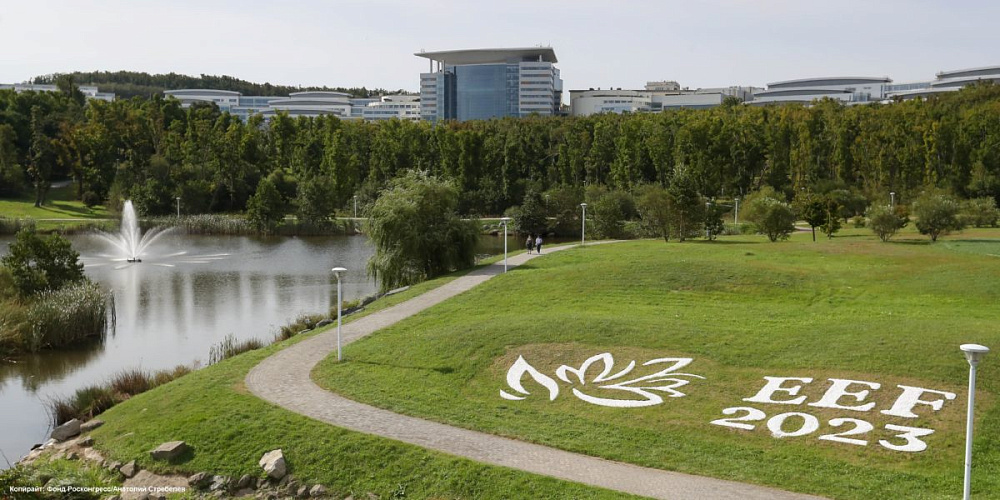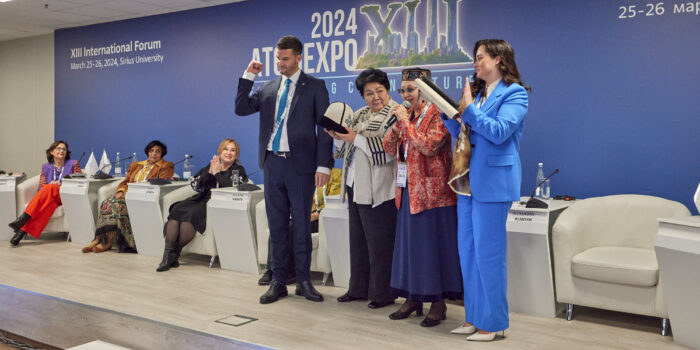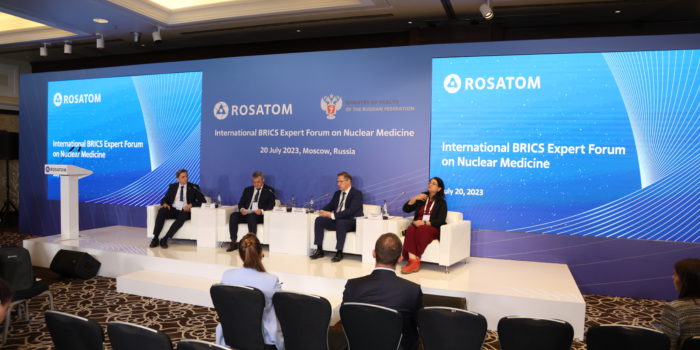At the grand opening, Rosatom CEO Alexey Likhachev highlighted the long-standing partnership between the Znanie Society and the state nuclear corporation. He warmly addressed the audience: “I wondered how to greet you today: as friends, partners, or colleagues? For this occasion, I have chosen to call you ‘Dear kindred spirits!’ Why? Because the Znanie Society and Rosatom share a true kinship. For decades, the Znanie Society has been dedicated to passing on knowledge fr om passionate experts to the younger generation. Today, this hall gathers some of the country’s most curious and enthusiastic minds. I will speak about the nuclear industry's past and present, and most importantly, its future. Together, we will explore this vital topic, as the future of every individual, our nation, and the entire planet depends on it.”
Rafael Grossi, Director General of the International Atomic Energy Agency (IAEA)—the organization responsible for promoting the peaceful use of nuclear energy—also addressed the opening. He emphasized that the nuclear industry drives progress in medicine, environmental protection, water resource management, and many other fields. He stressed the importance of young people not only understanding these contributions but also actively building on existing successes. This is particularly significant for the new generation in Russia, a country with a long history as a pioneer in the peaceful application of atomic energy.
“You, the younger generation, will soon take the lead in a mission built by your predecessors,” Grossi said. “The International Atomic Energy Agency was established 70 years ago by our fathers, grandfathers, and grandmothers, in a time of great hope for atomic energy. This was shortly after World War II and the first use of nuclear weapons, when there was a strong belief that nuclear science and technology could open new opportunities and create a better world for everyone. Though the reality is complex, that hope remains at the core of our work. Russia has achieved numerous breakthroughs in nuclear science and technology, many of which have been shared with other countries. As future professionals, you must remember that the future of nuclear energy and science depends on all of us. We need to build on past achievements and drive progress forward. The involvement of women, young people, and technologists is crucial to ensuring the nuclear industry reflects a world wh ere we are all equal. We must understand that by engaging with nuclear energy and science, we are committing to a safer world based on international cooperation and partnership. I wish you good luck! You have friends worldwide, and the IAEA is your home too.”
Maxim Dreval, General Director of the Znanie Society, opened the "Knowledge. The Pioneers" Marathon with a welcoming address. He remarked, “The nuclear industry and the Znanie Society share much in common, especially three core values: pride, inspiration, and dreams. The dream of peace once drove our scientists to develop a ‘nuclear shield’ that safeguarded our nation’s sovereignty. This milestone fueled an ambitious new vision for nuclear energy in the service of peace—leading to the world’s first nuclear power plant, the only nuclear icebreaker fleet, and advanced space technologies. Pride in these accomplishments continues to inspire scientists to pursue breakthroughs in nuclear medicine, quantum technologies, and beyond. The Znanie Society marathons embody this very spirit.”
The World Atomic Week International Forum, dedicated to the 80th anniversary of the Russian nuclear industry, is being held at Moscow VDNKh from 25 to 28 September 2025. The Forum organized by Rosatom, includes the exhibition of the achievements of the Russian nuclear industry and its partners. The business program features thematic tracks such as: "Affordable Clean Energy", "Industrial Innovations: Improving Production", "Ecology: Making the Planet Cleaner", "Advanced Medicine: Protecting Human Health", "Digital Breakthrough", "Mobility: Logistics Without Borders", "Comfortable Environment", and "Science and Education: Driver of Progress". The youth program (from 27 to 28 September) includes the scientific and educational marathon "Knowledge. Pioneers” organized by the Russian society Znaniye within the framework of the national project "Youth and Children". The Forum also includes the II Youth Festival "Composites Without Borders". www.worldatomicweek.com
In 2025, the Russian nuclear industry celebrates its 80th anniversary. On 20 August 1945, Russia established a special nuclear energy committee. In response to the threat posed by the United States, the country created nuclear weapons within four years (RDS-1 bomb successfully tested in 1949). This saw the USSR becoming a pioneer and leader in the peaceful use of nuclear energy. Domestic atomists built the first nuclear power plant in Obninsk in 1954 and the first nuclear icebreaker Lenin in 1959 to help explore the Arctic. The main theme of the anniversary year can be expressed in three words: pride, inspiration, and dream. The industry founders’ feats have been a source of pride for nuclear scientists, who are inspired by the achievements of previous generations. They are also intended to push forward and expand the possibilities. The celebration of the 80th anniversary of the nuclear industry is suggested to include a number of events, with the main ones being the performance in Nizhny Novgorod on 20 August and the World Atomic Week international forum that is being held in Moscow from 25 to 28 September.

